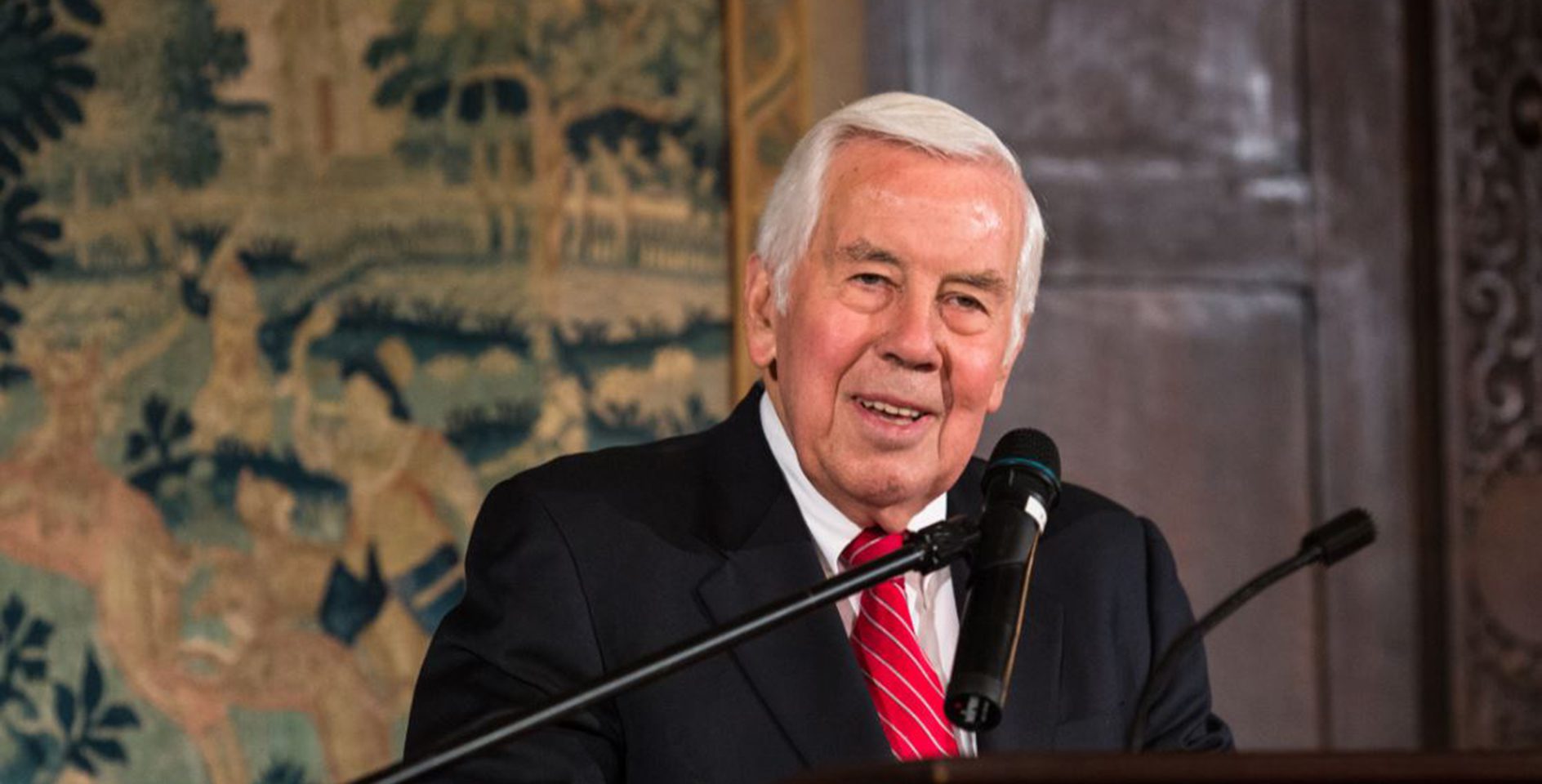Former U.S. Sen. Daniel Patrick Moynihan coined a phrase about a coarsening American political discourse: “defining deviancy down.” What he meant by that was, in far too many cases, rhetoric that was well outside the norms of accepted political behavior was being normalized, making the public square a toxic place.
One of Moynihan’s former colleagues, Richard G. Lugar, was a public servant who actually tried to define deviancy up. Sen. Lugar, who is being remembered at the Indiana State Capitol, was a man whose life was marked by efforts to rise above the power plays and misrepresentations that so often plague political life. He did this for a remarkable 36 years in the U.S. Senate. I was fortunate, in the midst of that impressive run, that he took the time to help open some doors for me that led to my first job out of college. We know from Galatians 5 that kindness is one of the fruits of the spirit. His act of kindness at the outset of my professional life would set me on a path for a career based mostly in and around electoral politics and public policy.
He certainly did not have to help me, but for those who worked with Lugar or watched his career from afar, he had a reputation for lending a hand to others. In fact, his life could be summed up in one word: decency. He saw the best in allies and opponents and worked with them to advance the common good for the nation he served, particularly when it came to matters of international consequence. From his perch on the Senate Foreign Relations Committee, Sen. Lugar forthrightly opposed authoritarian regimes across the globe, championed our most significant foreign alliance known as the North Atlantic Treaty Organization (NATO), and led efforts for nuclear arms reductions. He did all of this without denigrating or undermining those who disagreed with him. He always seemed to think the best of friend and foe alike.
Former Indiana Gov. Mitch Daniels put it best in his statement marking Lugar’s passing: “The world is safer from nuclear danger because of him. And so many of us, while falling far short of the standards he set, are vastly better people because of him.”
Sen. Lugar’s life set a seemingly impossible standard in today’s political environment. A quick survey of the latest news demonstrates how. In Alabama, a state representative used some of the most callous language imaginable about pro-life motives. In Tennessee, a top legislative staffer in the statehouse is accused of using racial slurs about African-Americans and explicitly texting about his sexual advances toward women. He’s since been fired but now his boss, the Speaker, is embroiled in the controversy. At the national level, leaders now seem to casually deploy curse words with reckless abandon.
It appears deviancy is being defined down at a record rate. Some will easily dismiss these examples as “politics as usual.” Others will point to moments in history where public rhetoric was at a similar ebb. While those views may be relevant, it doesn’t mean Christians have to cheerlead these actions or take part in them. In fact, we should reject these ways and instead strive to model for the world a better way. I would submit that Sen. Lugar’s example shows us how.
In an interview, Sen. Lugar was asked what he’s learned about life:
My point of view is informed by my faith and prayer — it's a way of trying to express to God what my aims may be. Even in that expression, it's having the humility to understand that I might not be on the right track . . . That kind of faith gives you the ability to accept defeat, and maybe a series of defeats, that could be debilitating if you didn't believe that your course is onward and upward forever.
He starts from a place of humility—a trait in public service that is rare. But it only comes when a leader realizes he or she is playing but a small role in the larger story that is unfolding across history. That’s probably why you also detect in this short statement from Sen. Lugar an unmistakable assurance about a future that is guaranteed––one that he had nothing to do with as an elected official. And that’s an important takeaway for Christians who are either serving in public life or interested in the political arena.
Our lives and our work should be redemptive, pointing people away from the crass and repugnant examples that are replete in a fallen world. Instead, our private words and public deeds should demonstrate that we are different from this political culture, sent here to seek the good of those we serve and the communities we call (our temporary) home. Sen. Lugar strove to do this for his earthly city (Jer. 29:7) by implicitly pointing to the city that is to come (Heb. 13:14). We are better off because of the example of decency he provided.









